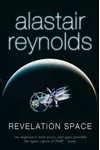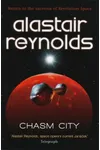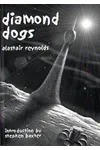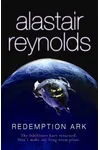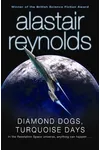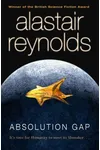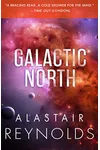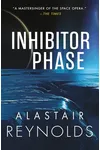Step into the cosmic expanse of the Revelation Space series, where humanity teeters on the edge of discovery and doom in a universe teeming with ancient mysteries! Crafted by Alastair Reynolds, this hard science fiction saga blends space opera grandeur with gritty realism, pulling readers into a future where interstellar travel, alien relics, and existential threats collide. From shadowy starships to long-dead civilizations, it’s a thrilling ride that’s as thought-provoking as it is epic.
How Revelation Space Began
Alastair Reynolds, a Welsh astrophysicist with a PhD in astronomy, channeled his scientific expertise into his debut novel, Revelation Space, published in 2000. While working at the European Space Agency, Reynolds began weaving a universe grounded in plausible science, inspired by the likes of Arthur C. Clarke and Larry Niven. His goal? To craft a sprawling yet believable future history, free of faster-than-light travel, where humanity’s ambitions clash with cosmic realities. The novel’s success sparked a series that became a cornerstone of the New Space Opera movement.
The Heart of Revelation Space
The series kicks off with Revelation Space, where archaeologist Dan Sylveste uncovers the fate of the extinct Amarantin civilization, hinting at a galaxy-wide threat. Redemption Ark (2002) escalates the stakes as humanity faces the Inhibitors, ancient machines programmed to eradicate intelligent life. Absolution Gap (2003) wraps the main trilogy with a battle for survival, while Inhibitor Phase (2021) revisits the universe centuries later. Spanning from 2200 to 40,000 AD, the series includes novels, novellas, and short stories, all set in a gritty universe of cybernetic hybrids, vast starships, and moral ambiguity.
Reynolds’ themes dig deep: the Fermi Paradox (why are we alone?), the fragility of civilizations, and the ethics of technology. His prose, often gothic and evocative, paints haunting settings like the decaying starship Nostalgia for Infinity. Characters, flawed and obsessive, drive the narrative—Sylveste’s arrogance, Volyova’s fierce intellect, and Khouri’s conflicted loyalty make them unforgettable, if not always likable. It’s hard sci-fi with a human pulse, balancing cosmic scale with personal stakes.
Why Revelation Space Resonates
Revelation Space redefined space opera by grounding it in scientific rigor and moral complexity, earning praise for its mind-bending ideas and vivid worldbuilding. Shortlisted for the BSFA and Arthur C. Clarke Awards, the series has inspired a dedicated fanbase and influenced modern sci-fi writers. Its blend of noir, mystery, and cosmic horror continues to captivate readers who crave stories that challenge assumptions about humanity’s place in the universe. Even years later, its chilling vision of a future both wondrous and perilous feels startlingly relevant.
- First Published: 2000 (Revelation Space)
- Main Trilogy: Revelation Space, Redemption Ark, Absolution Gap
- Awards: Shortlisted for BSFA and Arthur C. Clarke Awards
- Setting: 2200–40,000 AD, no faster-than-light travel
Ready to explore a universe where every discovery could be humanity’s last? Grab Revelation Space and dive into Alastair Reynolds’ masterpiece of hard science fiction adventure!
